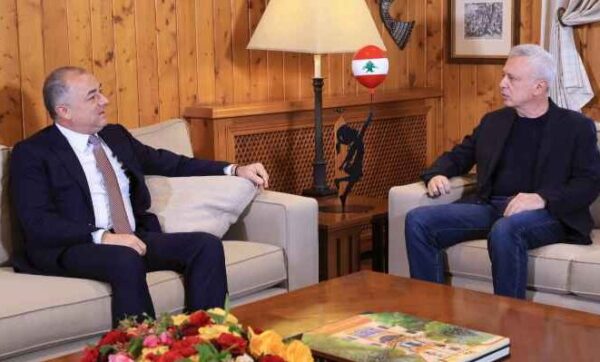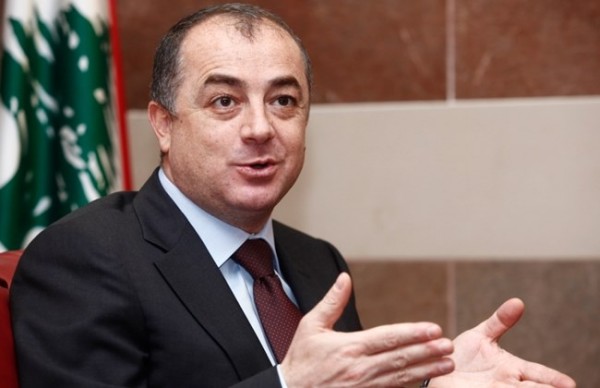
MP Elias Bou Saab who serves as Deputy Speaker blamed the parliament on Friday for failing to elect a president and called for a new parliamentary election
“I urged Speaker ( Nabih )Berri to begin considering early parliamentary elections should the current parliament fail to elect a president,” Bou Saab said after meeting the Speaker
“Speaker Berri did not object to these remarks and said ‘let’s see what happens next time,’” Bou Saab added.
“What I learned from the parliament speaker is that dialogue is the best gateway, but if the parties do not want it, he is willing to call for a new presidential election session,” the Bou Saab said.
Bou Saab , who is a member of FPM and who declared last February that he is willing to vote for Suleiman Franjieh predicted that new alignments will take place by Free Patriotic Movement and the Progressive Socialist Party and some independents, if a new session takes place. His comment was branded as “wishful thinking” , because both blocs consider Franjieh a confrontational candidate
According to analysts Bou Saab has it all wrong .
One analyst told Ya Libnan : You can’t blame the parliament for the flaw in the parliamentary election system.
Flawed election system
Lebanon’s presidential election system has come under scrutiny in recent years due to its inherent flaws and the potential for undemocratic outcomes.
The current system, which requires a candidate to secure a two-thirds majority in the first round, often leads to situations where even a candidate with the support of 65 % of the parliament in the first round may fail to secure victory. It is imperative to reconsider this system and explore alternative approaches to ensure a fair and representative electoral process.
In the most recent election the candidate of the opposition , former minister Jihad Azour secured 59 votes of the 128 member parliament in the first round while his opponent the Hezbollah and Amal backed candidate secured 51 votes . At the end of the first round the MPs of Hezbollah and its allies and their candidate walked out of the parliament and declared victory . The speaker who is a very close ally of Hezbollah decided to end the election session.
According to analysts the current presidential election system in Lebanon is in dire need of reform. The existing two-thirds majority requirement in the first round, coupled with the potential quorum issues in the second round, has resulted in undemocratic outcomes and a lack of faith in the process. By adopting the “half plus one” system in the first round, Lebanon can move towards a more representative and inclusive electoral process, ensuring that the will of the majority prevails. It is crucial for the Lebanese lawmakers to address these concerns and work towards a fairer presidential election system that upholds the principles of democracy and strengthens public trust in their democratic institutions.
In conclusion, Instead of calling for new parliamentary election , Bou Saab should urge Berri to call for a parliamentary session to change Lebanon’s current flawed election system and adopt the “half plus one” system in the first round, which is the same system that is currently being used to elect a Speaker and designate the Prime Minister .


Leave a Reply
You must be logged in to post a comment.